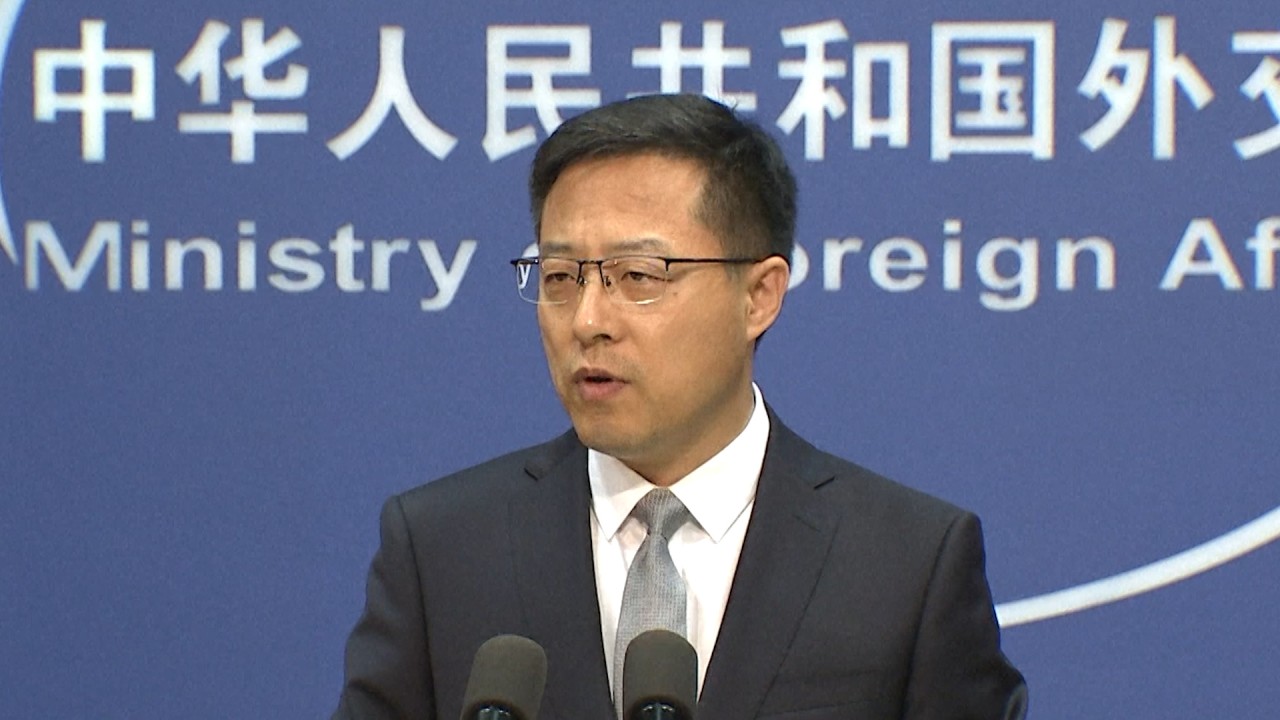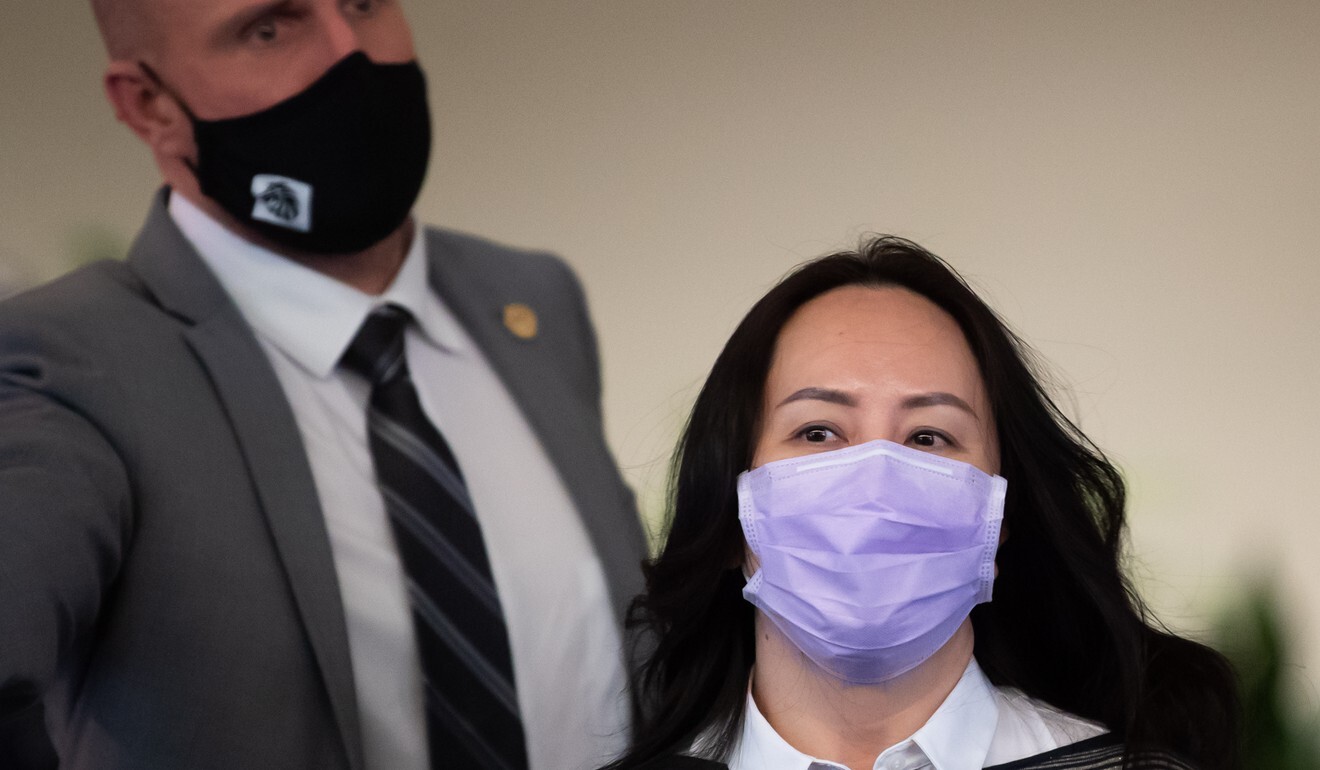
Canadian officer says US never asked for Meng Wanzhou’s electronic passwords – but he took them ‘without thinking’
- Constable Gurvinder Dhaliwal of the RCMP says the border agency that provided the passcodes tried to get them back – but they had been filed with the courts
- Meng’s lawyers have depicted the illegal handover of the passcodes as part of a covert operation to gather evidence against her, orchestrated by the FBI
A Canadian police officer involved in the arrest of Huawei Technologies executive Meng Wanzhou has testified that US authorities never asked for the passwords to her electronic devices – but he still took delivery of them from a border officer on the day of Meng’s arrest.
The handover breached Canada’s privacy laws, the Supreme Court of British Columbia has previously heard. Meng’s lawyers have depicted the move as part of a covert evidence-gathering exercise, conducted on behalf of the US Federal Bureau of Investigation, as they seek to have Meng’s extradition thrown out on the grounds that her rights were violated.
Meng, Huawei’s chief financial officer, was detained at Vancouver’s airport on December 1, 2018, at the request of the US, which accused her of defrauding HSBC by lying about Huawei’s business dealings in Iran – thus putting the bank at risk of breaching US sanctions there. Meng denies the charges.
Royal Canadian Mounted Police Constable Gurvinder Dhaliwal, testifying in the extradition case on Monday, said that the Canada Border Services Agency (CBSA) tried to rectify the blunder more than a week after Meng’s arrest, when it asked for the passcodes to be returned.
Canadian MPs join campaign to release Meng Wanzhou, citing Sinophobia
But it was too late – they had already been filed with the BC court system, Dhaliwal told Canadian government lawyer John Gibb-Carsley, representing US interests in the case.
Dhaliwal said that CBSA officer Nicole Goodman telephoned him and “indicated to me that these codes were given in error to us”.
“She was asking if they could get them back, but I said no, you would not be able to get them back yet,” Dhaliwal recalled.
But he denied ever using the passcodes to gain access to Meng’s devices, which were seized during the CBSA examination before Meng’s arrest at Vancouver’s airport. Nor did he pass them to American law enforcement, Dhaliwal said.
The devices included an iPhone, a Huawei phone, an iPad, an Apple laptop and a memory stick.

01:05
China urges Canada to immediately release Huawei CFO Meng Wanzhou
In taking delivery of the passwords from the CBSA, Dhaliwal is a key figure in the Meng legal team’s argument that there was a deliberate attempt to use the pre-arrest border examination to help the US fraud case against Meng.
Dhaliwal said that after Meng’s arrest, CBSA officer Scott Kirkland gave him a piece of paper containing Meng’s passwords, along with Meng’s devices. Dhaliwal said he “absolutely did not” ask for the passcodes, although he did not say anything in objection at the time.
“I didn’t even think about it. I just put them with the phones,” he said. He said he assumed the note and the devices would eventually be returned to Meng.
Kirkland has testified that he obtained the passwords as part of Meng’s immigration examination, but that it was a “heartbreaking” mistake to have given them to the RCMP.
Canada border agent ‘falsified account of questioning’, Meng lawyer claims
Dhaliwal said on Monday that after the arrest, Meng’s file was transferred to the RCMP’s financial integrity unit because of the case’s complexity. Ben Chang, a staff sergeant in the unit who has since retired, sent Dhaliwal an email saying the FBI had requested information about Meng’s devices.
“I just spoke with [FBI] Legat John Sgroi,” Chang wrote to Dhaliwal on December 4, three days after the arrest. “They are requesting the descriptions and lists of the devices (with ESN#, make model) we seized from MENG.” ESN refers to electronic serial number.
Chang says in an affidavit that he “believes” the FBI requested “identifying information from the electronic devices seized from Ms Meng”.
But he also said in the affidavit that “[as] I was never asked for the identifying information by [any] member of the FBI, or any other member of any other United States authorities, this information was never shared”.

He is now refusing to testify about the apparent contradiction.
Chang moved to the Chinese gambling hub of Macau after retiring from the RCMP in 2019; Canada’s Department of Justice cited “witness safety” when it tried to prevent Meng’s lawyers from seeing notes about an interview with him.
In cross examination, Meng’s lawyer Scott Fenton focused on Dhaliwal’s failure to take notes about discussions of the various alternative ways that Meng could have been arrested, such as on the jetway or on the plane, instead of after the hours-long immigration examination.
“Did it not occur to you, in the middle of planning this high-profile address, that it might be a good idea to take notes,” Fenton asked. “There were discussions,” Dhaliwal responded.
Dhaliwal said he believed the warrant’s order to arrest Meng “immediately” had been complied with. But he told Fenton he had not read the arrest warrant before Meng was detained.

00:54
Trudeau rejects releasing Meng Wanzhou to free detained Canadians in China
Although he said doing so would only have taken him “two seconds”, he believed this task fell on his partner Constable Winston Yep as the primary officer, who would go on to actually arrest Meng.
Associate Chief Justice Heather Holmes adjourned the hearing until Tuesday morning.
The extradition hearings are expected to last well into next year, and appeals could drag out the process for years beyond that. Meng is living under partial house arrest in one of the two houses she owns in Vancouver.
Meng’s treatment has infuriated China. Soon after her detention, Beijing arrested Canadians Michael Kovrig and Michael Spavor, and accused them of spying. Ottawa considers the arrests are retaliatory and both men to be victims of hostage-taking.

